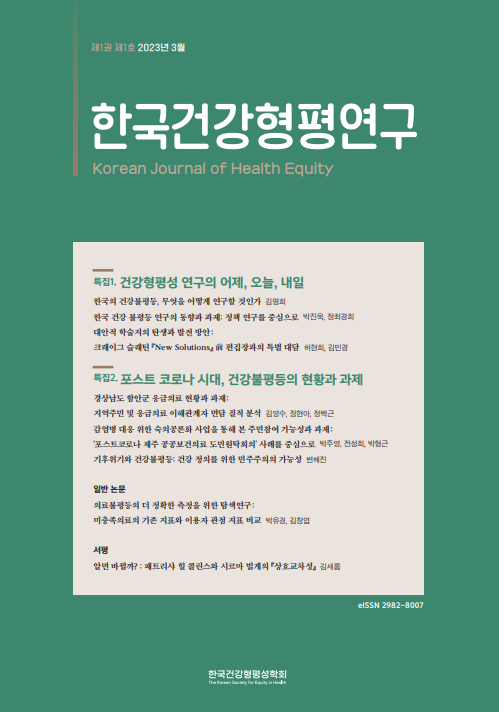- KOREAN
- E-ISSN2982-8007
 E-ISSN : 2982-8007
E-ISSN : 2982-8007
Thinking of Social Movement about Disability and Disease Leading to the Struggle for Medical Power
Abstract
People with disabilities are subordinate to medical care throughout their daily lives. The disability movement has fought to guarantee the rights of the disabled against the pathogenesis of disability. Until now, the disabled community has not sufficiently dealt with the body and motor thoughts about disease to resist medical power. Meanwhile, patients' demands for recognition of disability gradually increased. This is a result of the lack of a support system for patients in constant medical situations, and at the same time, it is to counter discrimination by stigma against disease. The absence of a support system for patients is due to a treatment-oriented medical system, and medical institutions do not deal with causal areas of treating diseases in the patient's body. The treatment-oriented medical system did not guarantee other areas of care, and unlike the disabled who have been left to die in rehabilitation and healing spaces for national growth, patients have been left to die in the absence of a support system outside the hospital. The process of hospitals becoming facilities and facilities becoming medicalized served as a strong factor in maintaining the category of disabled people in facilities. The health rights movement centered on medical providers did not deviate from treatment-oriented medical care. Now, disabled bodies and various bodies should fight the pathology of the disease together and start a movement to shift to care-oriented medical care rather than treatment-oriented medical care.
- keywords
- Right to health for disabled people, Medical power, Care-oriented healthcare
- Submission Date
- 2024-01-18
- Revised Date
- 2024-02-20
- Accepted Date
- 2024-02-27
- Downloaded
- Viewed
- 0KCI Citations
- 0WOS Citations


